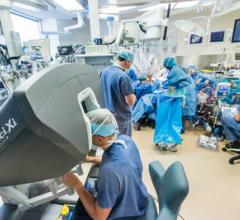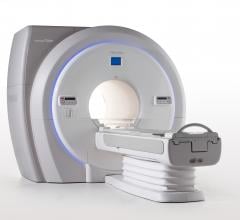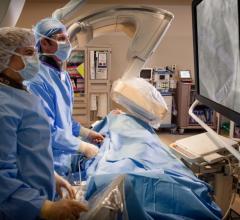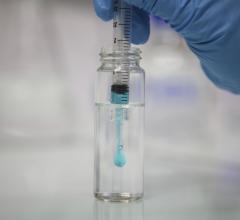The Montreal Heart Institute (MHI) announced the acquisition of the da Vinci Xi, a new-generation surgical robot, and the first in Canada to be exclusively dedicated to cardiac surgery. "The development of robotic cardiac surgery plays a major role in the expansion of minimally invasive surgery, whose purpose is to minimize the trauma endured by the body by reducing the incision size, for instance", according to the surgical team counting among its members Michel Pellerin, M.D., and Denis Bouchard, M.D., the two cardiac surgeons who performed the first robotic mitral intervention last April. "This new technology will improve the patients' quality of life and allow for a faster return to daily activity, among other benefits", they continued.
Abbott announced U.S. Food and Drug Administration (FDA) approval for magnetic resonance (MR)-conditional labeling for one of the company's most widely-used implantable cardioverter defibrillators (ICD) and associated high voltage leads. The approval of MR-conditional labeling for the Ellipse ICD with the Tendril MRI pacing lead and Durata and Optisure high voltage leads adds another patient-centric benefit to the device and will help further improve access for patients suffering from abnormally fast heart rhythms who need an ICD and who may need an MRI scan in the future.
September 21, 2017 — Fujitsu announced that the University of Tokyo recently used heart simulator viewers with ...
Cardiac PET/CT represents a major advancement in cardiovascular diagnostics, offering significant clinical and ...
Edwards Lifesciences Corp. recently received U.S. Food and Drug Administration (FDA) approval for its Inspiris Resilia aortic valve, the first in a new class of resilient heart valves.
MyoKardia Inc. announced that additional positive data from the first patient cohort of its Phase 2 PIONEER-HCM study were presented at the Heart Failure Society of America (HFSA) 21st Annual Scientific Meeting, Sept. 16-19 in Dallas. PIONEER-HCM was a study of mavacamten in symptomatic, obstructive hypertrophic cardiomyopathy (oHCM) patients.
September 21, 2017 — Toshiba Medical will highlight its latest magnetic resonance imaging (MRI) technology, led by the ...
SPONSORED CONTENT — Studycast is a comprehensive imaging workflow system that allows healthcare professionals to work ...
September 21, 2017 — Cardinal Health and Tryton Medical Inc. announced that the Tryton coronary Side Branch Stent was ...
September 20, 2017 — Not-for-profit preclinical research institute CBSET announced that its scientists have published ...
September 20, 2017 — Catheter ablation to treat an irregular heartbeat, which limits or eliminates patients’ exposure to ...
Providing exceptional cardiovascular care for patients to achieve the best possible outcomes is the number one goal for ...
Shockwave Medical reported positive results from the DISRUPT BTK Study, which were presented at the annual Cardiovascular and Interventional Radiological Society of Europe (CIRSE) congress, Sept. 16-20 in Copenhagen, Denmark.
ScImage Inc. and Invia Imaging Solutions recently announced formation of a joint partnership at the American Society of Nuclear Cardiology’s (ASNC) 22nd Annual Scientific Session, Sept. 14-17 in Kansas City, Mo. ScImage, provider of scalable web-based image and information management systems, has teamed with Invia, a cardiology imaging software solutions provider, to enable users of ScImage’s Picom365 Enterprise PACS (picture archiving and communication system) seamless access to 4DM. Users of Picom365 will now have access to 4DM’s advanced quantification capabilities as part of their on-premises, cloud or hybrid enterprise solution.
The heart failure space across the seven key markets of the U.S., France, Germany, Italy, Spain, the U.K. and Japan is set to grow from $3.7 billion in 2016 to around $16.1 billion by 2026, according to research and consulting firm GlobalData. This represents an impressive compound annual growth rate of 15.7 percent.
Cardiac positron emission tomography (PET) is growing in popularity among cardiologists because it provides the ability ...

Cardiac nuclear myocardial perfusion imaging (MPI) has been a mature area of imaging for years, but has recently started ...
Gecko Biomedical announced it has received CE Mark approval for its Setalum Sealant, allowing the company to market its technology in Europe.
September 18, 2017 — Corindus Vascular Robotics Inc. announced first patient enrollment in the PRECISION GRX Registry, a ...


 September 22, 2017
September 22, 2017

















